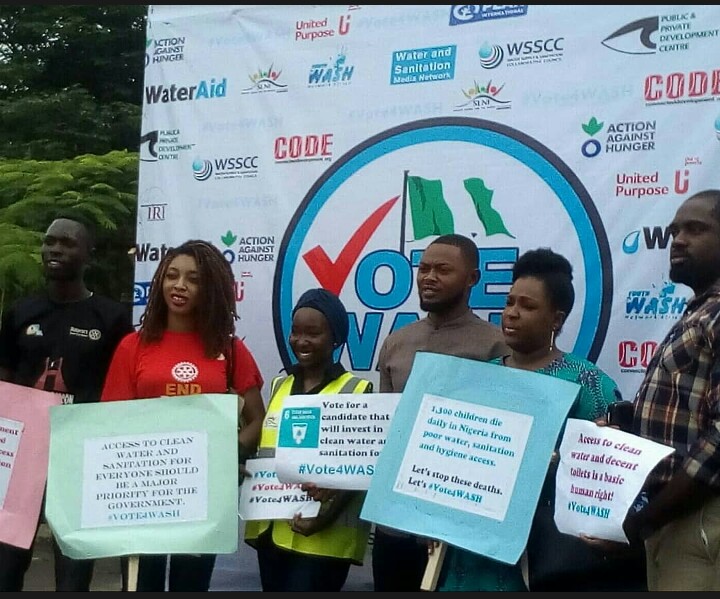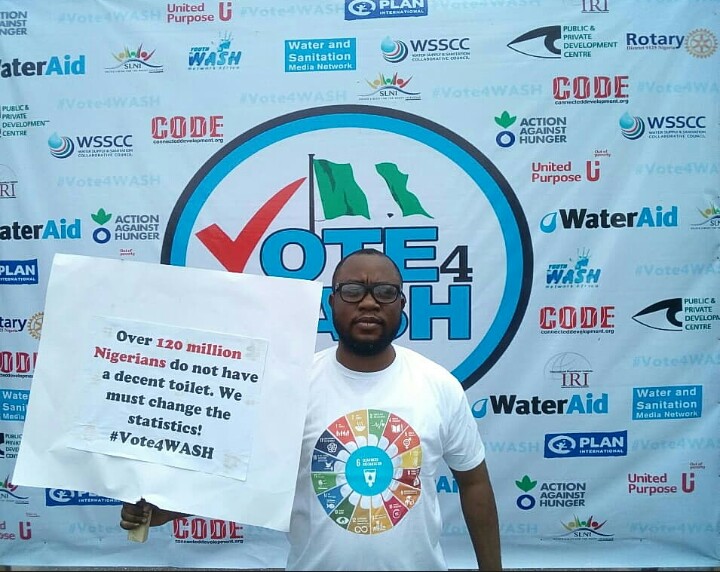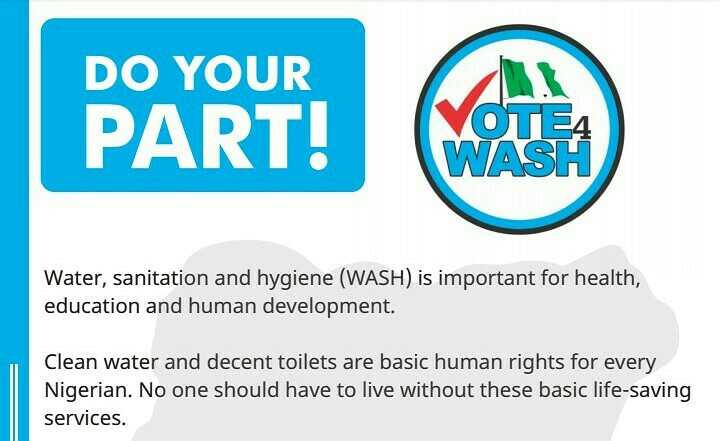As we count down to Nigeria’s 2019 general elections, WaterAid and other development partners continue to highlight the importance of clean water and decent toilet to the general wellbeing of Nigerians and make the case for clean water, basic sanitation and good hygiene to be given priority in the country’s development agenda.
Water, sanitation and hygiene (WASH) remain one of the most neglected critical issues in the country; a fact driven home by the Federal Government’s declaration of a state of emergency in its WASH sector in April this year. With nearly 60 million people living without clean water, over 120 million without access to a decent toilet and about 46 million defecating in the open, we cannot afford to ignore the urgency of WASH action in Nigeria.
At the current rates of progress, the promise to bring safe water and toilets to everyone by 2030 will not be met. In fact, the percentage of the population with access to basic sanitation continues to drop steadily. It is sad that a country of our stature cannot provide these basic life-saving services to its citizens. Nearly 60,000 children under the age of five die of WASH related diseases in Nigeria every year. Sub-Saharan Africa ranks lowest in the world for access to improved drinking water and sanitation and that is linked, of course, to the region’s under-five mortality rate which

is one of the highest in the world.
According to Oluseyi AbdulMalik, Head Communication WaterAid Nigeria, speaking at the Vote4WASH flag off, “Vote4WASH campaign is aimed at positioning WASH as a key issue in political discourse towards the run in into the 2019 general election”.
“We hope to achieve this by mobilising the general public to demand for improved WASH service using their votes while also engaging political parties and their candidates to understand the importance of WASH in human development. WASH commitments made during election campaign will be tracked to hold elected office holders accountable” she said.
There is still a lot of inequality in our society and we are still leaving millions behind: children, women, persons living with disabilities and our most vulnerable and marginalised communities. These are the people who could benefit most from these services and we need to ensure we target resources to those who are most at risk from a lack of access to clean water and sanitation.
Many Nigerians will save on health bills

and be able to be more productive and generate more income if they have clean water and sanitation. Without access to water and sanitation, many will not get a fair chance at escaping poverty and reaching their full potential. Our leaders cannot continue to be careless with the health and wellbeing of its citizens and we must hold them responsible for doing the things they are supposed to do.
Sadly, the impact of poor access to WASH is not limited to health alone. Women and children bear the burden of getting water for the household; this prevents children from attending school regularly and can discourage parents from enrolling their children in school. Furthermore, it reduces the amount of time women can spend on productive activities that will help in alleviating poverty.
However, despite these documented negative impacts of lack of access to WASH, provision of WASH still ranks low in the development priorities of most elected officials in Nigeria.
Thankfully, we have an opportunity now to change this. You can change this.
The Vote4WASH campaign calls on all electoral candidates to ensure that water, sanitation and hygiene promotion is given the priority it deserves with ambitious universal access targets on (WASH) for households as well as schools, health facilities and other public places.
We ask that electoral candidates (across all elective positions) seeking the vote of Nigerians to heed calls to improve the wellbeing of Nigerians by providing universal access to clean water and decent toilets and ensuring that no child dies a preventable death because of a lack of these basic but yet vital and fundamental services.
We call on the people of Nigeria to use their votes to demand for their right to clean water and decent toilets. It is time for politicians to be held to a higher standard of governance. It is the duty of all eligible voters to seize this opportunity to hold candidates to account during and after the election. A vote for clean water is a vote for good health, education and improved livelihood.
The success of the Vote4WASH campaign was clearly documented in the last election with Aljazeera reporting that after corruption and before religious and ethnic divisions, water was a key election issue. We need to make and keep access to water, sanitation and hygiene a priority again.

text